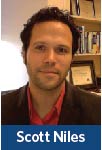Greetings from the Big Easy! While New Orleans was apparently bestowed this moniker for its laid-back nature, in reality it’s just the opposite. This city is teeming with life and vibrancy, with music blasting from every direction, creole cottages and stately mansions brimming with fascinating style and history, and throngs of people from all walks of life crowding onto Bourbon Street to experience its sights, sounds, and spirits.
It certainly is a lot to take in.
It seems like the perfect backdrop for PRIM&R’s 2017 IACUC Conference and my pre-conference workshop, IACUC101TM: “The Basics”. Like New Orleans, this day-long workshop had much to offer. One could say it was like drinking from a fire hose—there was an overflow of information, materials, and perspectives in the best possible way.
Workshop attendees came from a wide range of backgrounds. While many people from larger organizations solely handle IACUC duties, others (like me) come from smaller organizations where they have responsibilities related to their IACUC, IRB, and other areas of their research enterprise. Further, attendees came from a variety of institutional types, such as academic institutions, private laboratories, pharmaceutical companies, and government entities. I think this variety allowed for a diverse array of perspectives.
The workshop kicked off with Monte Matthews, director of Animal Welfare Services and director of Terrestrial Animal Care Services at the University of Oregon, who provided a spirited welcome and an interesting historical background on animal research regulations. I think a historical perspective is a critical, but often neglected, facet of the work we do. Knowing where we came from offers a framework to help guide our decisions as IACUC professionals.
While it was invaluable to receive practical information about IACUCs and the regulations governing animal research, what struck me as most poignant was a recurring emphasis on pathos versus ethos with respect to animal research. All too often, we use federal regulations and the importance of scientific advancement as the rationale for what we do and how we do it, sometimes even brandishing them like weapons to compel researchers and stakeholders into compliance. However, Molly Greene, IACUC advisor in the Office of the VP of Research at Michigan State University and co-founder and faculty of the Essentials of IACUC Administration course, noted that we should engage in animal care and protection because it’s the right thing to do. It’s a simple and compassionate viewpoint that can appeal to stakeholders on an emotional level.
Later in the workshop, Ernest Prentice, associate vice chancellor and professor of Genetics, Cell Biology, and Anatomy at the University of Nebraska Medical Center, addressed the potential emotional impact euthanasia may have on principal investigators, students, and other animal care workers. He relayed a personal story about his discomfort with a particular euthanasia process when he was a student, and how he wished his mentor had spent time talking about the emotional impact of animal research. Again, I found this to be a fresh and earnest perspective on our roles in animal research.
IACUC 101 was an informative, interesting, and engaging program, and I’m fortunate to have been able to experience it! I would encourage all IACUC administrators, both new and seasoned, to consider attending this workshop. While the wealth of information can seem like drinking from a fire hose, the experience—much like that of the Big Easy—is worth it.
Scott Niles, PhD, CRA, is the Director of Research Integrity and Compliance at Morehead State University (MSU) in Morehead, KY. Dr. Niles has more than 12 years’ experience as a grant writer and research administrator. In his current role as compliance director, Dr. Niles oversees the daily and long-range compliance management of grants and contracts, including sub-award negotiation, sub-recipient monitoring and the Responsible Conduct of Research. As MSU’s Institutional Official, he also directs the IACUC, the IRB, and the Intellectual Property Committee.


No comments! Be the first commenter?